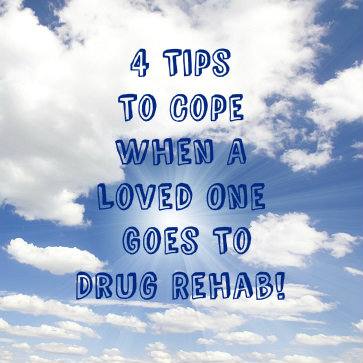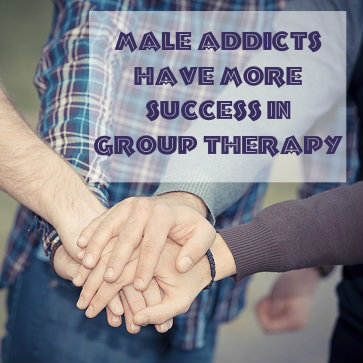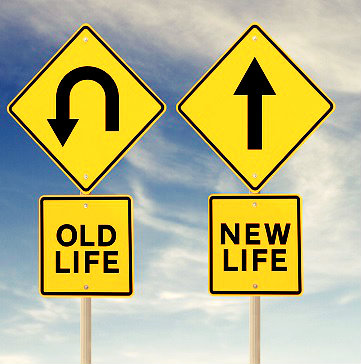14 Aug 2014
Who Is Going To Rehab?
A successful drug rehab program is one that reaches out to all kinds of people who need help and that provides those people with the skills they need to stay sober outside of the program. There are plenty of wonderful rehab facilities operating today, but who is getting help? Statistics can give us a lot of information about who is going to rehab and getting much-needed treatment.
What Can Be Treated In Rehab?
 What happens in rehab depends on the type of addiction being treated, the age and experience of the patient and many other individualized factors. Information from surveys and research tell us that the majority of patients seeking help in rehab facilities are struggling with alcoholism or problem drinking. Nearly one-quarter of all admissions to rehab are people with an alcohol problem only.
What happens in rehab depends on the type of addiction being treated, the age and experience of the patient and many other individualized factors. Information from surveys and research tell us that the majority of patients seeking help in rehab facilities are struggling with alcoholism or problem drinking. Nearly one-quarter of all admissions to rehab are people with an alcohol problem only.
A further 18 percent need treatment for alcohol addiction and abuse of another substance. Seventeen percent of people getting help are struggling with marijuana dependence, 14 percent need help for heroin addiction, and about 6 percent are battling addiction to non-heroin opioid drugs, most commonly prescription painkillers.
What Types Of People Seek Help?
Addiction is not a disease that targets one kind of person. Over 23 million people need to get treatment for addiction every year in the U.S. Among that population, 60 percent of people seeking help are white. Twenty percent of people in rehab are African American, 14 percent are Hispanic and 6 percent are Native American or Asian.
People seeking treatment for addiction may be any age, although the majority of admissions are people between the ages of 25 and 29. The next most likely age for those seeking treatment is between 20 and 24, followed by 40 to 44, with numbers dropping off quickly after age 60. Although the makeup of people getting care for addiction is varied, access is still not perfect and not everyone who needs help is getting it.
Is Rehab Successful?
Drug rehab is successful for many people, but it is important to remember that addiction is a chronic illness and has no cure. Drug rehab success rate statistics refer to the ability of programs to set addicts on the path to long-term sobriety. Relapse is not considered failure, as most addicts can expect to give in to cravings at least once. In fact, statistics show that rates of relapse for addicts seeking treatment are similar to those for other chronic diseases such as high blood pressure and diabetes.
Words of encouragement for someone in rehab can go a long way toward helping him or her achieve successful sobriety. If you have someone in your life struggling to make it through rehab, lend your support, your words of inspiration and your time in order to help him or her along the path to long-term success.
Learn More About Drug And Alcohol Rehab
If You Would Like More Information About Rehab – Call Us Now – We Are Here To Help!
29 Jul 2014
What Are The Steps Of Drug Rehab?
Going to rehab for drug addiction is a daunting challenge. You have to face up to your addiction, entrust others with your care and get ready to face the future without drugs or alcohol. With such big and scary steps to take, the last thing you need is to be afraid of what happens in drug rehab. When you know what to expect and what you are facing, the whole experience will be less frightening and you can devote your energy to healing and getting sober.
What Is The First Step In Rehab?
 The first thing you can expect to go through, no matter what kind of drug rehab you choose, is detox. If you are wondering what happens during detox, you are not alone. Many addicts find this to be the most frightening aspect of getting clean. It’s possible that the program you choose will expect you to go through detox before entering, but most offer detox services. To detox means taking the couple/few days necessary to stop using substances and wait while the last of them leave your body. You can expect to feel withdrawal symptoms during this process, including anxiety, irritability, fatigue, headaches, nausea and insomnia. However, many detox programs offer more comfortable medicated or holistic detox options.
The first thing you can expect to go through, no matter what kind of drug rehab you choose, is detox. If you are wondering what happens during detox, you are not alone. Many addicts find this to be the most frightening aspect of getting clean. It’s possible that the program you choose will expect you to go through detox before entering, but most offer detox services. To detox means taking the couple/few days necessary to stop using substances and wait while the last of them leave your body. You can expect to feel withdrawal symptoms during this process, including anxiety, irritability, fatigue, headaches, nausea and insomnia. However, many detox programs offer more comfortable medicated or holistic detox options.
What Happens During A Drug Rehab Intake?
Once you have detoxed, whether at your chosen facility or at a specialized detox center, you will go through intake at your rehab program. This involves being assessed by the professionals working in the facility, including a doctor or nurse, a therapist or psychiatrist, and other addiction specialists. You will also be expected to go through some paperwork. If you feel uncomfortable filling out and signing forms in your current state, ask if you can bring a trusted friend or family member along to help.
During this initial period you will also begin to shape your treatment plan. If you have chosen a successful drug rehab, you can expect to have a plan individualized for your specific needs. It will be based on the assessment done during your intake, as well as on your own input and should be approved by a doctor or nurse who will go over it with you. Your plan may change as you go through treatment and your needs change.
What Do You Do In Drug Rehab?
Once you have a treatment plan in hand and you have successfully detoxed, you will begin your treatment. The implementation of your treatment plan makes up the bulk of your experience in rehab. Make sure it is explained to you in advance, and don’t hesitate to ask questions about it so that you know what to expect. You will likely participate in daily counseling sessions. Some will be with just you and your therapist, while others will be group sessions in which you will be asked to open up with your fellow addicts in recovery.
You may also engage in recreational activities and educational workshops. These will be strictly scheduled so that you are always doing something and so that your downtime is kept to a minimum. This does not mean that you will never be alone or allowed to reflect, just that your time in rehab will be busy and engaging.
Direction For Your Continuing Recovery
Finally, as your time in rehab is nearing an end, you can expect to work with your therapist or other experts at the rehab facility to plan your future. The caring professionals with whom you have been working will not simply send you out the door hoping for the best. They will help guide you toward a future that is full of life and free of addiction.
IF YOU OR YOUR LOVED ONE IS STRUGGLING WITH ADDICTION AND
NEED HELP FINDING A REHAB FACILITY, CALL US NOW!
09 Jul 2014
4 Tips To Cope When A Loved One Goes To Rehab
If you have a loved one struggling with addiction, getting her into rehab has probably been your top priority. Now that she’s gone, how do you cope? An important person is missing from your life. You have cared for her, been there for her, tried to help her overcome her addiction, and now you have turned your responsibilities over to someone else. You may be experiencing feelings of loss or guilt. Now is the time to learn how to take care of you, how to feel comfortable letting go, and how to get ready to have a sober loved one return home.
1. Learn About Addiction And Treatment
 Information is power and knowing more about what your loved one is going through will help you to better understand her. It will also help you to feel connected to her while you cannot be together. Read up on addiction, what it is, what it means for the addict, and how it impacts everyone around the addict. Learning about this disease will give you important insights into your situation.
Information is power and knowing more about what your loved one is going through will help you to better understand her. It will also help you to feel connected to her while you cannot be together. Read up on addiction, what it is, what it means for the addict, and how it impacts everyone around the addict. Learning about this disease will give you important insights into your situation.
You should also learn more about addiction treatment so that you know what is happening with your loved one at rehab. You may not be able to hold her hand through the process, but you will feel more comfortable when you understand what it entails. It may also be possible for you to get involved in her treatment at some level. Most rehab facilities offer family counseling as a component of treatment. Be sure to volunteer for these sessions to give you a chance to see your loved one and to participate in her care.
2. Join A Support Group
Being on the outside can be tough. You want to be there with her, helping her along the way. Surrendering that control to others is not always easy. One important way to cope with your feelings is to share with and learn from others. There are numerous support groups available to help the loved ones of addicts. They can be general groups that include all loved ones of addicts, or more specific. The great benefit in joining a support group is to share the burden of your grief, your guilt and all the other negative emotions attached to your loved one’s addiction and treatment.
3. Find Your Passion
As you learn to cope with having temporarily lost your loved one to rehab and treatment, it is important that you tend to yourself. For a long time you have cared for the addict in your life. You have looked out for her needs and spent so much of your time and energy worrying about her. Now that she is in the capable hands of treatment specialists, you can take care of you.
One of the best ways to do that is to focus on what you love to do. Return to an old hobby that you once felt passionate about or try something new that you have always wanted to do. The road ahead will be difficult and having something that’s entirely yours that you feel passionate about will help you cope both now and in the future.
4. Accept And Trust That Everything Will Be Ok – No Matter What
Having a loved one in rehab can be stressful for you. Just remember that you have left her in good hands with professionals who have experience treating addicts and who care about the patients they treat. Also remind yourself of how necessary this step was. She would never have been able to heal without professional treatment. Take care of yourself, participate in her sessions where possible and be ready to welcome back your sober loved one.
Read Our Other Posts For Friends And Family Of Addicts – Recovery Is Possible – Call Us Now To Begin The Path To Healing And Freedom From Addiction!
As a rule, people affected by drug or alcohol addiction benefit from some sort of psychological or behavioral counseling that can help them successfully discontinue substance use and learn how to maintain substance abstinence over time. Some treatment programs feature individualized counseling sessions that only include a therapist and a single patient, while others feature group counseling sessions that include a therapist and multiple patients. In a study published in late 2013 in the Journal of Groups in Addiction & Recovery, researchers from two Canadian institutions compared the rate at which participants in individual counseling-oriented programs successfully complete addiction treatment to the rate at which participants in group counseling-oriented programs complete addiction treatment.
What Is Individual Counseling?
 Individual counseling-based programs for addiction treatment rely on a therapeutic relationship between a therapist and a single patient/client to achieve the treatment objectives common to all forms of substance-related counseling. Typically, individual therapy takes place in sessions that last 30 minutes to an hour; the specific techniques used in each session depend upon the therapist and the guiding principles of the program in which he or she is involved. In most cases, a recovering addict participates in a single one-on-one session with his or her therapist per week. However, some programs make provisions for as many as three or more sessions per week or for sessions that only occur every 30 days or more. Because of its relatively high cost, individual therapy is used less often than group therapy as a treatment for substance abuse or substance addiction.
Individual counseling-based programs for addiction treatment rely on a therapeutic relationship between a therapist and a single patient/client to achieve the treatment objectives common to all forms of substance-related counseling. Typically, individual therapy takes place in sessions that last 30 minutes to an hour; the specific techniques used in each session depend upon the therapist and the guiding principles of the program in which he or she is involved. In most cases, a recovering addict participates in a single one-on-one session with his or her therapist per week. However, some programs make provisions for as many as three or more sessions per week or for sessions that only occur every 30 days or more. Because of its relatively high cost, individual therapy is used less often than group therapy as a treatment for substance abuse or substance addiction.
What Is Group Counseling?
Group counseling-based programs for addiction treatment rely on the natural human dynamic of group interaction to achieve typical goals such as regular attendance at counseling sessions, avoidance of a relapse back into substance use and the establishment of a solid foundation for ongoing substance abstinence. Depending on the program in question, group therapy can place a particular emphasis on any one of a number of recovery-related issues also commonly addressed in individual counseling-based programs. These issues include educating participants about various aspects of abuse and addiction, helping participants understand their underlying psychological/emotional motivations for substance use and helping participants establish mental and behavioral skills that can form the basis for a substance-free daily routine. Recovering addicts enrolled in group counseling-based programs may attend regular group sessions for as long as half a year to a year.
Comparing Completion Rates Of Both Types
In the study published in the Journal of Groups in Addiction & Recovery, researchers from Canada’s Western University and the Centre for Children & Families in the Justice System compared the rate of client/patient retention in individual therapy programs for substance abuse/addiction to the rate of client/patient retention in group therapy programs. They decided to undertake this work after finding out that the vast majority of voluntary enrollees at a Canadian agency for addiction treatment failed to complete their program participation.
The researchers concluded that the average recovering addict enrolled in a group therapy-based program is roughly 100 percent more likely to successfully complete his or her treatment than the average recovering addict enrolled in an individual therapy-based program. However, they also concluded that the majority of the difference in success rates between the two counseling approaches is gender-related. Broadly speaking, men participating in addiction recovery are more likely than women to drop out of any form of treatment. Still, men who participate in group therapy-based programs have a much higher treatment completion rate than men who participate in individual therapy-based programs. Conversely, the researchers found that women tend to complete individualized addiction therapy just as often as they complete group addiction therapy.
The conclusions made by the authors of the study published in the Journal of Groups in Addiction & Recovery indicate that doctors may need to take their patients’ gender into account when making recommendations for participation in either individual therapy or group therapy for addiction treatment. Further research will be needed to fully confirm the gender-related differences in the program completion rates among recovering addicts. While some programs rely only on individual therapy or group therapy, others combine the two approaches, largely because each approach typically produces some unique potential benefits for participants. This means that men in some programs who don’t respond well to individual therapy may still achieve their treatment objectives through regular attendance at any available group therapy sessions.
Read About How Drug Rehab Programs Rely On Science To Develop Effective Addiction Treatment Methods
10 Jan 2014
Can Addicts Make The “Choice” To Stop Using?
“As active alcoholics, we lost our ability to choose whether we would drink. We were the victims of a compulsion which seemed to decree that we must go on with our own destruction.
Yet we finally did make the choices that brought about our recovery. We came to believe that alone we were powerless over alcohol. This was surely a choice, and a most difficult one. We came to believe that a Higher Power could restore us to sanity when we became willing to practice A.A.’s Twelve Steps.
In short we chose to ‘become willing,’ and no better choice did we ever make.” (Bill W., letter, 1966)
Have We As Addicts Lost The Power Of Choice?
 What we hear in recovery is that we have lost the power of choice with regards to our addiction. When we begin to use, we cannot stop. It isn’t that we don’t want to stop—many times we actually do want to stop very much. But we cannot. An obsession of the mind and a compulsion of the body crush any opposition we might muster.
What we hear in recovery is that we have lost the power of choice with regards to our addiction. When we begin to use, we cannot stop. It isn’t that we don’t want to stop—many times we actually do want to stop very much. But we cannot. An obsession of the mind and a compulsion of the body crush any opposition we might muster.
And then we hear about the choices we need to make to pursue recovery. But if we have lost the power of choice, how can we do anything besides surrender to the overwhelming power of addiction?
We cannot, when drinking or getting high, effectively choose to stop. But we can choose to become willing to get sober. We have seen that when alcohol, drugs or other addictions enter the picture, we lose our ability to say “no.” We can make a choice that this is a fight we’re no longer going to try to fight. We can decide to walk away altogether and never look back.
The Decision To End The Denial Of Addiction
The other choice we must make is to end our pattern of denial. How many years have we been saying there was no problem, really, or that we had this under control? Make the decision to begin looking at your life with a brutally bright light. Start to see that denial has been your defense and it’s killing you. It’s time to admit the truth. When you are ready to become honest, and to admit that you are indeed powerless, you open yourself to hope.
Stop Blaming Others For Your Addiction
As we sat languishing in our addictions we identified the people and the things we could blame for the state in which we found ourselves. It was our parents, our upbringing, our genetics, God, our bosses, spouses, kids, the government or some other institution. We thought ourselves justified: if “so and so” wasn’t the way he was or if this entity hadn’t done to us what it did, we wouldn’t be living this way. The next important choice we make is to stop blaming other people. Many people live hard lives, or have been the victims of injustice, or a bad childhood, and they aren’t drugging themselves to death. No one denies that perhaps life has dealt you a hard hand, but few will sympathize enough to say a drug addiction was a justified response. This is the path you have chosen, actually. And it is the path you can choose to get off of.
“We must never be blinded by the futile philosophy that we are just the hapless victims of our inheritance, of our life experience, and of our surroundings—that these are the sole forces that make our decisions for us. This is not the road to freedom. We have to believe that we can really choose.” (Bill W., Grapevine, Nov. 1960)
Read More About A Candid Story Of Surviving Addiction And Choosing Life In Recovery
People addicted to opioid narcotics (and other drugs of abuse) often have additional mental health issues that significantly complicate their recovery during addiction treatment. In many cases, the situation is worsened by recovering addicts’ relatively infrequent use of available psychiatric services. In a study published in November 2013 in the journal Drug and Alcohol Dependence, researchers from Johns Hopkins University assessed the usefulness of an approach called contingency management (CM) in increasing recovering opioid addicts’ willingness to participate in psychiatric treatment. The researchers found that appropriate use of contingency management can significantly boost program participants’ attendance for psychiatric services.
Opioid Addiction And Mental Illness
 Like other forms of drug and alcohol addiction, opioid addiction is officially classified as a form of mental illness by the American Psychiatric Association. This is true because continued, excessive use of addictive substances literally alters the function of the human brain, and thereby fosters a range of serious, dysfunctional changes in everyday behavior. In addition, opioid addictions (and other substance addictions) often appear at the same time as other forms of diagnosable mental illness such as depression, schizophrenia or anxiety disorders.
Like other forms of drug and alcohol addiction, opioid addiction is officially classified as a form of mental illness by the American Psychiatric Association. This is true because continued, excessive use of addictive substances literally alters the function of the human brain, and thereby fosters a range of serious, dysfunctional changes in everyday behavior. In addition, opioid addictions (and other substance addictions) often appear at the same time as other forms of diagnosable mental illness such as depression, schizophrenia or anxiety disorders.
Numerous factors help explain the overlap between addiction and these mental illnesses, including the ability of substance abuse/addiction to trigger the onset of additional illness and the ability of non-substance-based mental illnesses to increase the risks for involvement in substance use. Research also indicates that substance addiction and other forms of mental illness share several important common risk factors that increase their likelihood of appearing together.
Contingency Management Basics
Contingency management is a behavior modification technique that uses rewards (and, in some cases, punishments) to bring about desired results in a drug treatment program or other therapeutic setting. One common form of this approach, called voucher-based reinforcement or VBR, uses the distribution of vouchers for services or material goods to encourage treatment compliance.
Another form of CM, called prize incentives contingency management, motivates compliance by giving patients a chance to win cash with every significant step toward active treatment participation. Contingency management is used in programs that treat addiction to substances such as opioid narcotics, marijuana, amphetamine, methamphetamine, alcohol and nicotine. Some programs use the technique to encourage abstinence during the course of recovery. Others use it to encourage participation in the psychiatric programs that address other forms of mental illness in people involved in substance addiction treatment.
Addicts Willing To Remain In Drug Rehab With Contingency Management
In the study published in Drug and Alcohol Dependence, the Johns Hopkins University researchers used an assessment of 125 adults going through outpatient treatment for opioid dependence to gauge the effectiveness of contingency management in improving the willingness to receive psychiatric services during participation in an addiction recovery program. Half of these individuals received $25 vouchers for each week of full participation in a 12-week course of psychiatric treatment. The remaining adults had access to the same psychiatric treatment, but did not receive vouchers or any other form of reward for treatment attendance. The researchers measured each group’s level of attendance after each month of the program.
After reviewing their findings, the researchers concluded that, compared to an approach that doesn’t employ contingency management, use of voucher-based CM nearly doubles the level of psychiatric treatment attendance after one month of treatment. In addition, use of vouchers more than doubles the level of attendance after two months of treatment and after three months of treatment. People who receive vouchers for psychiatric services remain in opioid addiction treatment just as often as people who don’t receive vouchers. They also successfully avoid using opioid drugs with equal frequency.
Contingency Management’s Clear Benefits In Addiction Programs
The authors of the study published in Drug and Alcohol Dependence believe that the use of contingency management techniques provides clear benefits for encouraging the use of psychiatric services in opioid addiction programs. However, they note that their research only looked at psychiatric services delivered to patients in a purposeful, coordinated manner during the course of addiction treatment.
Services delivered in other ways may or may not receive the same attendance boost from the contingency management approach. The authors also note that the specific type of psychiatric treatment offered in any given program may have a considerable impact on the usefulness of CM. In addition, program managers may need to alter or modify their use of CM in order to meet the specific challenges faced by their patient clientele.
Read More About Drug Rehab Treatment And Contingency Management
15 Jul 2012
Why Addicts Belong in Rehab and Not in Jail
10 May 2012
House Passes Medical Marijuana Bill
Recently, the House of Representatives passed a medical marijuana bill with a 236-96 vote in their favor. They still face an uphill battle in the Senate, however in order to defeat the promised veto from Governor John Lynch.


